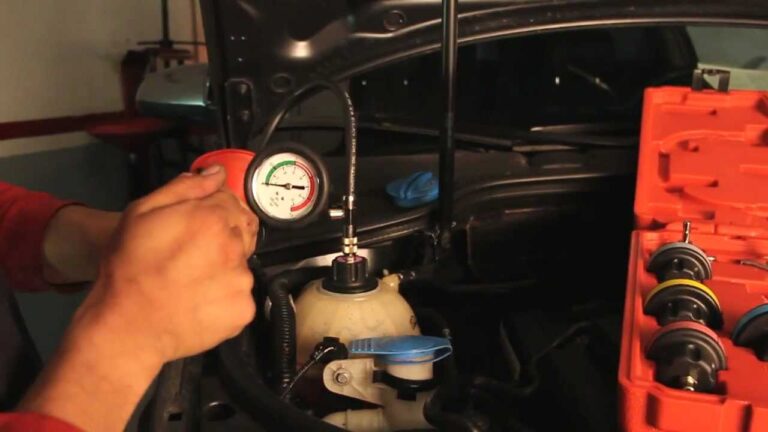The alternator is a fundamental part of the engine since its role is to be responsible for transforming the energy produced by the gasoline engine into electricity and, in turn, storing it in the battery. Thus, it is the power generator for all the electrical parts of your vehicle, such as headlights, windshield wipers, heating, window regulators, etc.

It is called like this because the current it produces is alternating and not continuous. In turn, it is made up of a magnetic field inductor, an induced conductor and a voltage regulator, conditioned by the engine revolutions, so if these increase it generates more energy.
Given the basic importance of the alternator for your car to work, how to know if the car’s alternator is failing or has a problem will be very useful to repair it and avoid more serious situations.
What do you need to know if the car alternator is failing?
- A car
- A voltmeter
Instructions to know if the car alternator is failing
- Alternator light. On your instrument panel you have a small warning light with a drawing of a battery (but it is not to know the level of this, but of the alternator) or the letters ALT or GEN for “alternator” or “generator”, which is it lights up briefly when you start the car-if it doesn’t, it may be burned out – but shouldn’t light up when you’re driving, however. For example, turning on various accessories, such as lights and wipers, and then turning off. If it does, it’s a basic sign that the alternator is failing.
- Turning light. Operate the control as if you were going to turn. If one of the lights is flashing more slowly than the other, or if both are flashing at a more spaced rate than usual, this is another sure sign that the alternator is having trouble.
- Others bright. Other lights on the dashboard that are also flickering, or that are dimmer than they should, or headlights that don’t respond as they should, or the power steering not working, so that the steering wheel is stiff, are signs of problems. electrical points that point directly to the alternator, so it would have to be checked.
- Noises: Listen to your engine, because depending on what noise it may be producing, it can give you clues as to what is happening. If you notice a squeal coming from the alternator area, it is likely that the bearings are worn, and if you hear a louder squeal, it could be an indicator of a fault in the alternator mechanism or also that it is the belt that is faulty. worn. If you have to change the car’s timing belt, we advise you to read this article first.
- Open the hood. And look for the alternator. If you don’t know its location, read the pulley configuration chart sticker on the front of the engine. The alternator is named with the initials ALT, for alternator, or GEN, for generator, and is in the front area of the engine. When you find it, look to see if the belt appears thin or worn, if it has cracks, or if there are shavings from the belt itself scattered on the alternator. Do not let it pass and change the strap. Still, it wouldn’t be a bad idea to have the alternator thoroughly checked, because there you could have another sign of alternator failure.
- With the voltmeter. It uses a voltmeter, set to the DC scale. Place the red cable on the positive terminal of the battery and the black cable on the negative or ground. Start the engine and turn off all the accessories, such as the lights, the radio, the heating… Step on the accelerator. The voltage should then be around 14 volts. If the voltage drops below 12 volts it is a sign that the alternator is not working properly and fails. Now turn on all the accessories at once, and check the voltmeter again. If the measurement is less than 13 volts, it most likely means the alternator is failing. This is a test that many auto parts stores will give you for free.
- Examine the download. This is the definitive test to know if your alternator fails or not. Take it out and take it to a specialized store to do a discharge test. If you cannot remove it from the engine, you should go to the mechanical workshop to have this test done.
Tips to know if the car alternator is failing
- You must pay attention to the possible smell of burning when you look at the alternator, because if the belt is off-center and rubs, or is very tight, that smell could be produced, which indicates a failure that affects the alternator.
- Check if the headlights are brighter than normal, as this could be a symptom of failure, as the alternator is producing more electricity to compensate for the resistance caused by a bad connection, a partially broken wire, or the like.






